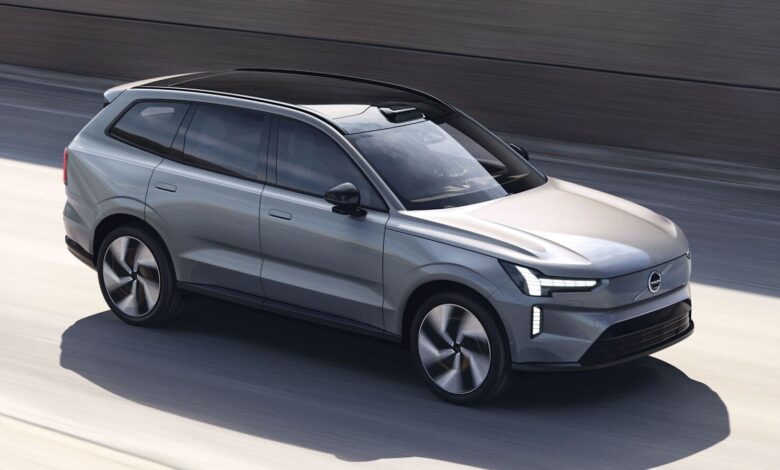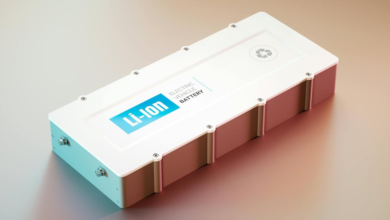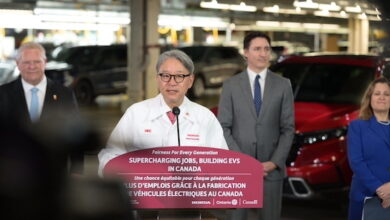Volvo will issue world’s first EV passport. What does it mean for you?

A battery passport will inform an EV owner about components used in the battery inside the vehicle, its orgins, carbon footprint and even the recycled
…
- A battery passport will inform an EV owner about components used in the battery inside the vehicle, its orgins, carbon footprint and even the recycled content.
How green is your green car? Even as electric vehicles (EVs) are touted as the best for the planet, the components – especially in the batteries – may not quite be. As such, Volvo is set to issue the world’s first EV battery passport that will record the source of components and raw materials, and list out the carbon footprint of the company’s flagship EX90 electric SUV.
News agency Reuters reports that the passport has been worked out by Volvo in partnership with UK-based startup Circulor. The company makes use of blockchain technology to trace the origins of supply chains for companies.
Also Read : Volvo just made its last-ever car with diesel engine
The objective behind having an EV battery passport for the EX90, according to Volvo, is to increase awareness and improve transparency around such vehicles. “It’s really important for us to be a pioneer and a leader,” Vanessa Butani, Volvo’s Head of Global Sustainability told Reuters. She also confirmed that the passport would soon be extended to all Volvo EVs.
Also Read : Volvo confirms EX30 and EX90 EVs are coming to India in 2025
It has also been confirmed that manufacturing of the EX90 with the batttery passport will commence shortly at the company facility in South Carolina in the United States and that deliveries for customers in North America and Europe will start from later this year. Customers will be able to access the battery passport by scanning a QR code. A comprehensive version of the passport will also be made available to regulators.
While Volvo has taken the lead in this regard, all others are expected to follow soon. This is because battery passports will become mandatory for EVs in European Union from February of 2027. This is in order to make customers aware of the battery composition as well as origins of key materials used.
First Published Date: 04 Jun 2024, 16:24 PM IST



